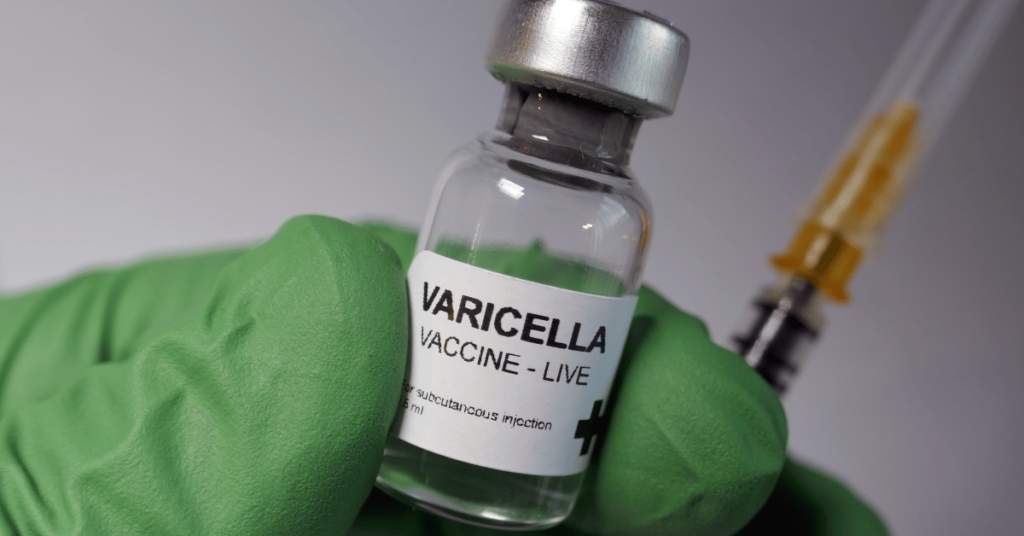Vaccinations are crucial for safeguarding your infant’s health by protecting them from a variety of serious, potentially life-threatening diseases. Following the recommended vaccination schedule proactively ensures your child’s well-being and helps prevent the spread of infectious diseases within the community.
Fortunately, infants can be vaccinated as soon as they are born—in fact, some vaccines are administered immediately after birth. Each vaccine is designed to protect against specific diseases and getting them at the recommended times ensures optimal immunity. It’s a good idea to discuss these vaccinations with your child’s neonatology team beforehand so you can be familiar with them yourself. At the same time, you can also use Singapore’s National Childhood Immunisation Schedule (NCIS) as a way to outline and track the essential vaccinations that infants should receive. Staying current with this schedule will help you track your child’s vaccinations and keep preventable illnesses at bay.
To that end, here is a list of vaccinations that you should take note of to keep your infant healthy:
HepB Vaccine
Hepatitis B is a serious liver infection caused by the hepatitis B virus (HBV). The hepatitis B vaccine, which is administered at birth, 2 months, and 6 months, protects infants against the said disease. The first dose is crucial and should be given within 24 hours of birth. Hepatitis B can lead to chronic liver disease and liver cancer, making the vaccine essential for long-term health. With this vaccine, you are protecting your child from a virus that can have severe consequences later in life.
BCG Vaccine
Also administered at birth, the Bacillus Calmette-Guérin or BCG vaccine protects your infants against tuberculosis (TB), a bacterial infection primarily affecting the lungs. This vaccine is usually given as an intradermal injection on the right arm and is often marked by a raised bump afterwards. It’s critical to protect infants against TB, as the disease can cause severe respiratory issues and other complications. Administering the BCG vaccine to infants contributes to TB prevention and protects your child from what could be a serious illness.
TDaP Vaccine
The TDaP vaccine protects against three serious bacterial infections: tetanus or lockjaw, a throat infection called diphtheria, and pertussis or whooping cough. This combination vaccine is administered at 2, 4, and 6 months, with booster doses at 18 months and between 10-11 years. The TDaP vaccine offers protection against diseases that can cause severe health problems, especially in young children. Receiving the TDaP vaccine on schedule helps your child build immunity against these dangerous infections.
IPV
Polio is a disease that typically affects the brain stem and can cause paralysis or even death. It used to be prevalent globally until the IPV or inactivated poliovirus vaccine was developed. This vaccine played a big role in protecting people against polio and curbing the disease’s devastating effects. It is given at 2, 4, and 6 months, with booster doses at 18 months and between 10-11 years. While polio can be considered eradicated in many parts of the world, vaccination remains essential to prevent its resurgence. By vaccinating your child, you contribute to the continued prevention of polio and safeguard your child from its debilitating effects.
Hib Vaccine
The haemophilus influenzae type b or Hib vaccine protects against infections such as meningitis, pneumonia, and epiglottitis, which are caused by Haemophilus influenzae type b virus. The vaccine is administered at 2, 4, and 6 months, with a booster dose at 18 months. Meningitis, pneumonia, and epiglottitis can be severe, particularly in young children, and can lead to serious complications and even death. The Hib vaccine significantly reduces the risk of these diseases and ensures your child’s immune system is prepared to fight off these infections.
PCV
There are various pneumococcal diseases, including pneumonia, meningitis, and sepsis. To protect against these diseases, your child is given the pneumococcal conjugate vaccine or PCV at 4, 6, and 12 months. Pneumococcal infections can be particularly severe in infants and young children, leading to long-term health issues or even death. Administering the PCV vaccine helps prevent these serious illnesses and at the same time supports the development of a strong immune system in your child.
MMR Vaccine
The MMR vaccine protects against measles, mumps, and rubella. These diseases are highly contagious and can lead to severe complications, including encephalitis, meningitis, and congenital rubella syndrome. The vaccine is administered at 12 months, with a second dose at 15 months.

Varicella Vaccine
The varicella vaccine protects against chickenpox, a common and highly contagious disease. While chickenpox is often mild, it can cause severe complications in some children, such as bacterial infections, pneumonia, and encephalitis. Vaccinating your child against varicella reduces the risk of these complications and prevents the spread of the disease to others, particularly to those who are immunocompromised or unable to receive the vaccine. The first dose of the varicella vaccine is given at 12 months and the second at 15 months.
Sticking to the recommended vaccination schedule is crucial for securing the health of your young children. Vaccinations protect against a variety of serious diseases, ensuring your child grows up healthy and protected against as many diseases as possible. By keeping up with their immunizations, you contribute to public health, too, preventing outbreaks and protecting those who cannot be vaccinated. Vaccinations are a cornerstone of responsible parenting and essential for your child’s bright future!





